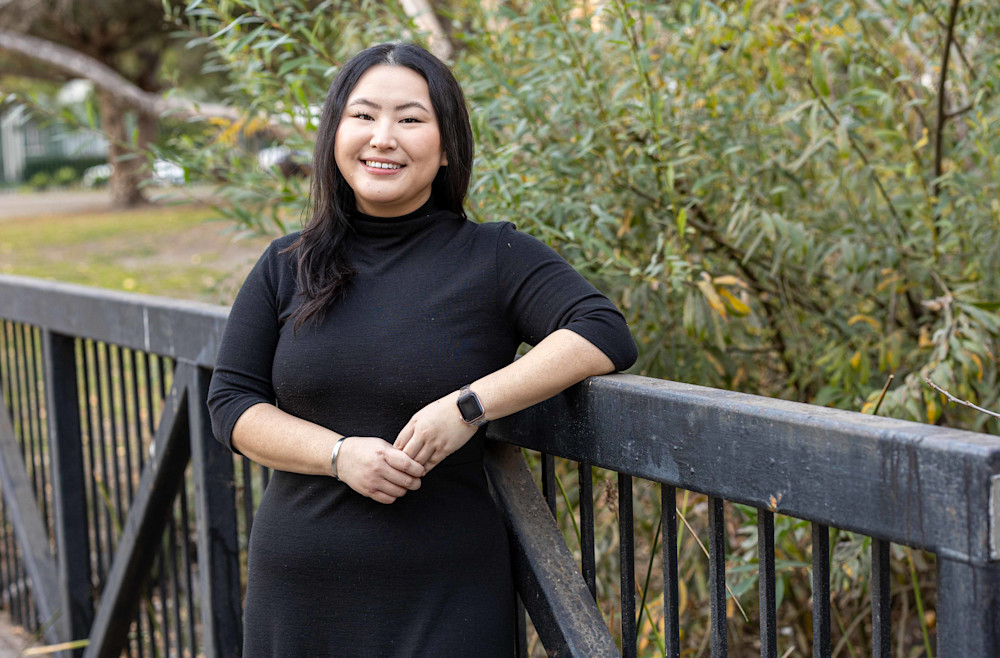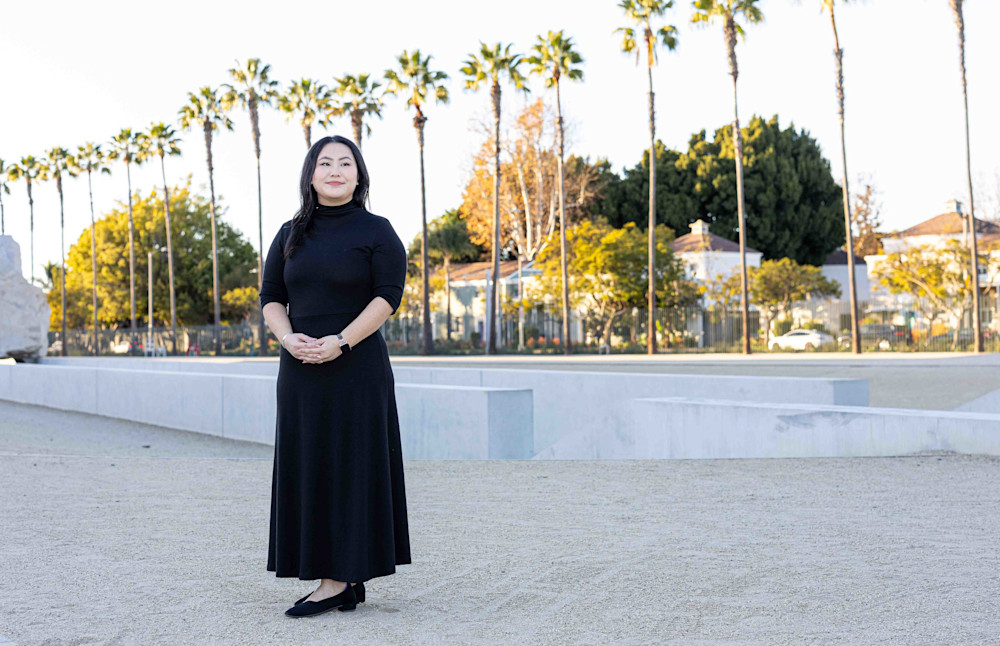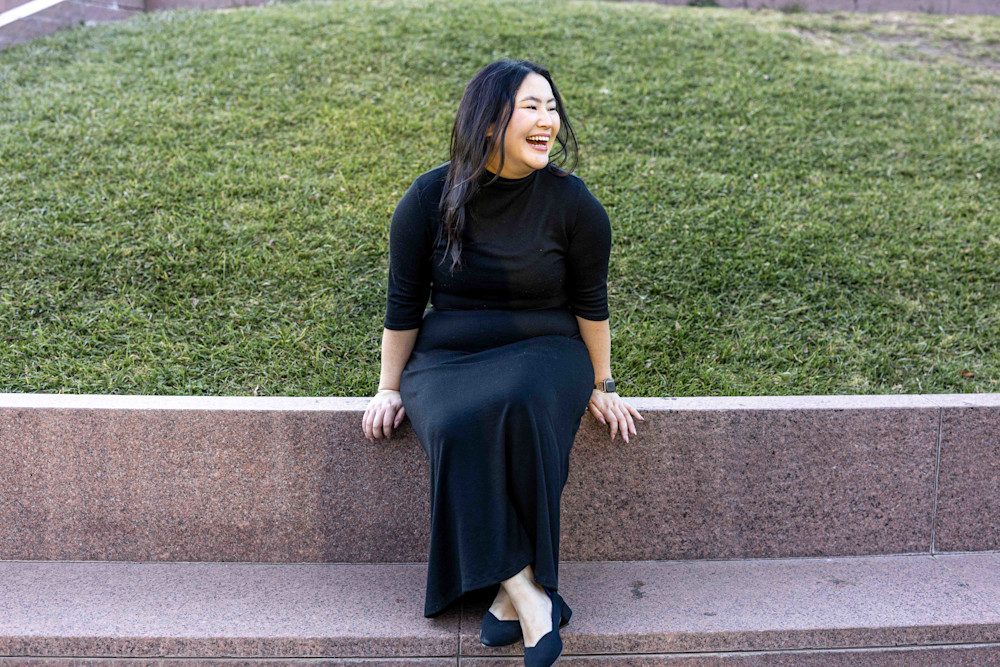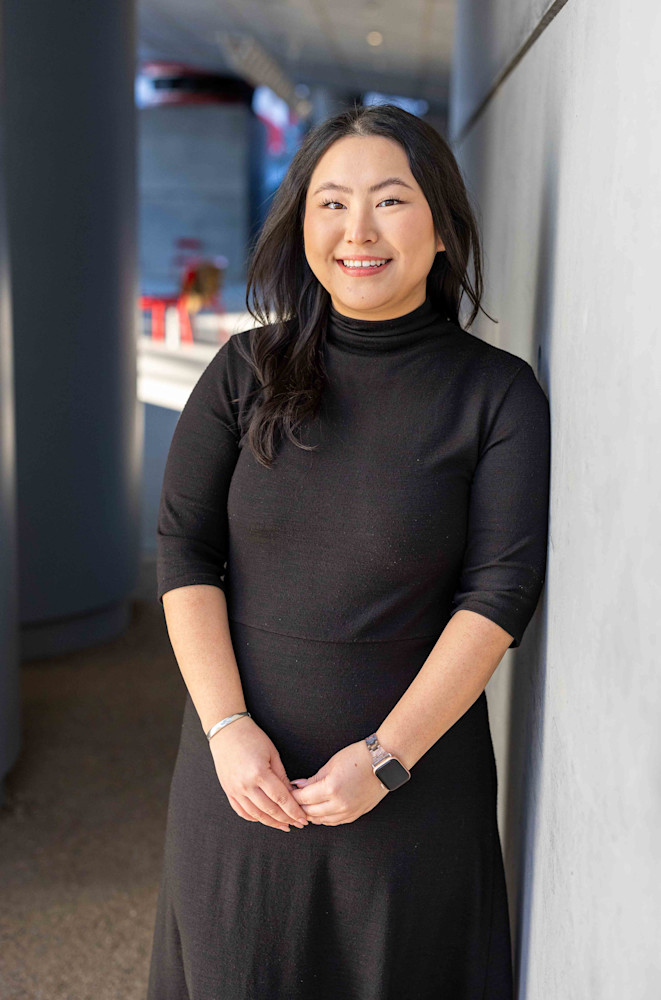Guo found the perfect fit for her goals with the Master of Science in Technology Innovation program
By Suzanne Lee
When Kelsey Minghan Guo (MSTI 2020) began her search for master’s programs, she had a clear goal: to build expertise in designing technology for social good. She found the perfect fit in the Master of Science in Technology Innovation (MSTI) program at the University of Washington’s Global Innovation Exchange (GIX), a unique engineering and business institute for emerging and established technology leaders.
Today, Guo is a product designer at Cohere Health in Los Angeles, working to drive better healthcare outcomes through innovative technology solutions. She credits the 18-month MSTI program for equipping her with the skills and experiences to make a tangible impact. “It’s more than a degree. It challenges you, supports you, and prepares you for the future,” she said.
A master’s program designed for real-world challenges
As an undergrad at the University of California San Diego, Guo studied cognitive science and human-computer interaction. She chose GIX’s MSTI program at the University of Washington for its interdisciplinary approach, which combines engineering, business, and design. “The hands-on, project-based curriculum and focus on social impact resonated with me,” she explained.

“Learning alongside classmates with such varied perspectives mirrored work environments and made the experience much richer,” Guo said. Small class sizes fostered close bonds among students from diverse professional backgrounds, including engineering, business, product management, and even art history.
Collaborating with Microsoft AI for Health and PATH
One of the program’s highlights for Guo was her capstone project, developed in partnership with Microsoft AI for Health and PATH, a Seattle nonprofit focused on global health equity.
Over six months, she and her team collaborated with experts on a rapid diagnostic test for use in low- and middle-income communities, gaining firsthand experience with the complexities of large-scale, high-impact international projects. “Working with Microsoft and PATH exposed me to how multinational organizations approach problem-solving,” she said. The skills she honed during this project translated seamlessly to her first job after graduation at Scanwell Health, where she designed a COVID-19 testing app for the U.S. market.
From blue-sky design to practical solutions
The MSTI program emphasizes practical, real-world problem-solving. Guo explained how this focus shifted her approach from unconstrained “blue-sky” ideas to grounded, actionable solutions.

“In undergrad, we often focused on blue-sky thinking—designing with very few constraints, brainstorming ideas that didn’t necessarily have to be feasible,” she said. “In the MSTI program, everything was grounded in practicality. We developed solutions that had to solve actual problems and meet requirements and standards in the real world.”
“Not only did we focus on real-world problems, MSTI also gave us the resources to explore different solutions,” Guo continued. “The maker space is filled with state-of-the-art equipment like 3D printers, laser cutters, a woodshop, etc. I was not only solving problems within realistic requirements but also given the freedom and opportunities to explore solutions at different fidelities.”
This holistic approach prepared her for the challenges of product design in healthcare, where practical solutions are essential. “The program’s emphasis on teamwork, problem-solving, and bridging gaps between disciplines made me a more effective designer,” Guo said.
Access to faculty and industry leaders
Guo’s time in the MSTI program connected her to a robust network of classmates and industry experts. Small class sizes and on-site faculty provided mentorship and guidance.
One standout mentor was Professor Sarah Zuberec. “Her class was one of my favorites, and her mentorship during and after the program has been invaluable,” Guo said. “One of her class projects—focusing on sustainability—solidified my design skills. In this case, it was a project to eliminate plastic waste by designing a sustainable boba straw. “Guo speaks highly of the program’s accessibility to faculty. “Unlike in larger programs, I could just walk upstairs and talk to my professors,” she said. “They cared about our success and made time for us both in and outside class. That level of support and connection made a huge difference in my learning experience.”
Guo emphasized the unique opportunities to interact with industry leaders through MSTI’s partnerships. “Collaborating with Microsoft and PATH was incredible, and the program also regularly connected us with professionals from a wide range of industries to broaden our learning,” she said. “My team and I also had the opportunity to collaborate with Singapore Govtech to design a touchless airport ID verification experience. GovTech is a government-led innovation group, and it was my first time working with an organization of that nature, especially an international one.”

Guo also made an impression on the GIX faculty. According to Associate Teaching Professor Linda Wagner, “Kelsey Guo exemplifies the type of student who gets the most out of the Master of Science in Technology Innovation. She came in the door with an already impressive relevant academic background, experience, and a clear framework for why she chose the program, but she was still open to what she might learn and discover during her journey. She was very intentional in her engagement in the program. She did not ‘stay in her lane’ and stick with topics and domains she already knew, but instead actively looked for how to engage with parts of the curriculum she was less familiar with.”
“Kelsey leveraged the extracurricular aspects of the program by pursuing mentorship and soliciting feedback from faculty outside of class time,” continued Wagner. “It’s not surprising that she continues to give back by staying engaged as an alumni council member and is a popular mentor with current students.”
Advice for prospective students
Guo encourages prospective MSTI students to approach the program with curiosity and focus. “Be open to exploring new career paths, but also have a goal in mind,” she advised. “You’ll get the most out of the program by being intentional about what you want to achieve.”

She highlights the value of learning alongside people with different training and life experiences. “Working with people from other industries and professions broadened my perspective and taught me how to collaborate in the workplace, where there are so many variables,” she said.
A transformative experience
Reflecting on her journey, Guo expressed gratitude for GIX and the MSTI program’s impact on her career and personal growth. “It gave me the clarity and confidence to pursue product design as a career,” she said. She believes the program provides the perfect environment to grow.
“It was absolutely the right choice for me,” Guo said. “The skills, connections, and confidence I gained will stay with me throughout my career.”
Ready to work on projects like these? Learn more about the MS in Technology Innovation or apply to be a student.
Interested in sponsoring a project? GIX capstone projects offer corporate sponsors up to six months of access to international and interdisciplinary teams of graduate students in the University of Washington’s project-based Master of Science in Technology Innovation. Learn more here.

 Back to News
Back to News

